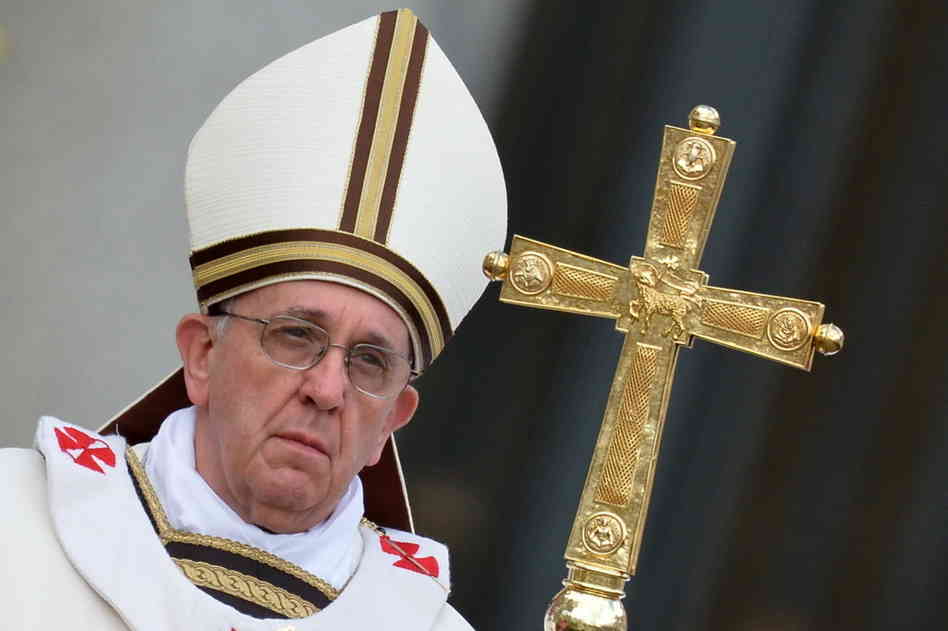The leaders of the two dominant denominations of Christianity, Pope Francis, the head of the Roman Catholic Church, and The Most Rev. Justin Welby, the Archbishop of Canterbury and a leader of the Anglican Church, both celebrated their first Easter this weekend.
Pope Francis, in his address after Mass at St. Peter’s Square, sued for world peace, especially in war-torn countries. He delivered his Urbi et Orbi (to the city and the world) blessing to a crowd of at least 250,000 people from his papal balcony in the Vatican, the same spot where he first appeared to the world as pope after his election on March 13.
The pope asked “the risen Jesus, who turns death into life,” for peace in beleaguered parts of the world. He specifically appealed for a diplomatic solution to the crisis on the Korean peninsula, peace between Israelis and Palestinians, an end to the civil war in Syria, and political solutions to conflicts in several African countries, including Nigeria.
He also condemned the “iniquitous exploitation of natural resources” and urged everyone to be “guardians” of creation.
“Peace in Asia, above all on the Korean peninsula: may disagreements be overcome and a renewed spirit of reconciliation grow,” he said, speaking in Italian.
Francis said the message of Easter is that faith can help people transform their lives by letting “those desert places in our hearts bloom.”
“How many deserts, even today, do human beings need to cross! Above all, the desert within, when we have no love for God or neighbour, when we fail to realise that we are guardians of all that the creator has given us and continues to give us,” he said.
Earlier, at a Mass in a square bedecked by more than 40,000 plants and flowers, the pope wore relatively simple white vestments in what has now become his trademark simplicity, as opposed to his predecessor Benedict, who preferred more elaborate robes.
Meanwhile, the new Archbishop of Canterbury used his first Easter Sunday sermon to warn against “pinning hopes on individuals” in politics and public life to deliver a better future.
The Most Rev Justin Welby said ignoring complexity and humanity left us “unreasonably disappointed” with everyone “from politicians to NHS, education to environment.”
He told worshippers at Canterbury Cathedral that setting people or institutions up to heights where they can only fail was “mere cruelty.”
The Archbishop, who became head of the Church of England early March, also criticised a “hero leader culture” which he claimed led to unfair blame in society.
“A political party gets a new leader and three months later there is comment about disappointment,” he said.
“An economy suffers the worst blow in generations with a debt crisis and economic downturn, and the fact that not everything is perfect within five years is seen as total failure.
“Complexity and humanity are ignored and we end up unreasonably disappointed with every institution, group and policy, from politicians to NHS, education to environment.”
He also said failure to recognize human failure in any organization was naïve.
“Put not your trust in new leaders, better systems, new organisations or regulatory reorganisation,” he added.
“They may well be good and necessary, but will to some degree fail. Human sin means pinning hopes on individuals is always a mistake, and assuming that any organisation is able to have such good systems that human failure will be eliminated is naive.”
“Human fallibility recognised, God’s sovereignty trusted – these are also the only stable foundation for human beings in society. Setting people or institutions up to heights where they cannot but fail is mere cruelty,” he said as he used reports on Friday that only 40 per cent of churchgoers are convinced the new archbishop can resolve the problems of the Church of England to back up his message.



Leave a Reply